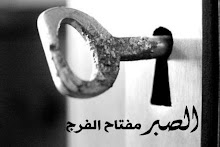20 Kata Keterangan Waktu dalam Bahasa Arab yang Perlu Anda Tahu
Berikut ini 20 kata keterangan waktu yang harus kita ketahui, ketika berkomunikasi dengan menggunakan bahasa Arab.
sekarang = الْآَن (al-ān)
besok = غَـــــــــدًا (ghadan)
kemarin = أَمْــــــــــــس (ams)
besok lusa = بعــــــــد غد (ba’da ghad)
kemarin lusa = أول أمــــــــــس (awwal-ams)
hari ini = الْيَــــــــــــــوْم (al-yaum)
Nanti = فِيْــــــــــمَا بَعْـــــــــد (fīmā ba’d)
Nanti malam = اللَّيــــــــــــــــلة (al-lailah)
pagi hari = صَبَــــــــــــاحًا (ṣabāhan)
sore hari = عَشِيَّـــــــــــةً (‘Asyiyyatan)
malam hari = مَسَـــــــــــــــــــاءً
telah/sudah/
akhir-akhir ini = مُـــؤَخَّــــــــــــرًا (mu-akh-kharan)
segera = قَرِيْـــــــــــــــبًا (qarīban)
masih = مَــــــــــازال (māzāl)
belum = ليـــــــــس بعد (laisa ba’d)
sesaat/sebentar = لَحْظَـــــــــــــةً (lahẓah)
tidak pernah = أبــــــــــدَا (abadan)
selamanya = الى الأبــــــد (ilal-abad)
segera/sekaligus = فـــــــــــوراً / على الفور (fauran/’alal-faur)
http://
Why A Moslem Have To Study Arabic?
Ibnu Taimiyyah (rahimahullah) said,
“Before one can interpret and understand the Qur’an and the Hadith, he must know the denotations and connotations intended by the words of Allaah and His Messenger (sallaa Allaahu ‘alayhi wa sallam). How can their words be understood? Knowledge of the Arabic language in which we were addressed will help us to understand what Allaah and His Messenger (sallaa Allaahu ‘alayhi wa sallam) intended through their words, as will understanding the semantics behind the words and phrases. Truly, most of the misguidances of the Innovators occured due to this reason – they began to misinterpret the words of Allaah and His Messenger (sallaa Allaahu ‘alayhi wa sallam) claiming that they meant one thing, when really they meant another.”
(translated by Ola Shoubaki, from Al-Emaan:111)
--------------------------
Berikut ini 20 kata keterangan waktu yang harus kita ketahui, ketika berkomunikasi dengan menggunakan bahasa Arab.
sekarang = الْآَن (al-ān)
besok = غَـــــــــدًا (ghadan)
kemarin = أَمْــــــــــــس (ams)
besok lusa = بعــــــــد غد (ba’da ghad)
kemarin lusa = أول أمــــــــــس (awwal-ams)
hari ini = الْيَــــــــــــــوْم (al-yaum)
Nanti = فِيْــــــــــمَا بَعْـــــــــد (fīmā ba’d)
Nanti malam = اللَّيــــــــــــــــلة (al-lailah)
pagi hari = صَبَــــــــــــاحًا (ṣabāhan)
sore hari = عَشِيَّـــــــــــةً (‘Asyiyyatan)
malam hari = مَسَـــــــــــــــــــاءً
telah/sudah/
akhir-akhir ini = مُـــؤَخَّــــــــــــرًا (mu-akh-kharan)
segera = قَرِيْـــــــــــــــبًا (qarīban)
masih = مَــــــــــازال (māzāl)
belum = ليـــــــــس بعد (laisa ba’d)
sesaat/sebentar = لَحْظَـــــــــــــةً (lahẓah)
tidak pernah = أبــــــــــدَا (abadan)
selamanya = الى الأبــــــد (ilal-abad)
segera/sekaligus = فـــــــــــوراً / على الفور (fauran/’alal-faur)
http://
Why A Moslem Have To Study Arabic?
Ibnu Taimiyyah (rahimahullah) said,
“Before one can interpret and understand the Qur’an and the Hadith, he must know the denotations and connotations intended by the words of Allaah and His Messenger (sallaa Allaahu ‘alayhi wa sallam). How can their words be understood? Knowledge of the Arabic language in which we were addressed will help us to understand what Allaah and His Messenger (sallaa Allaahu ‘alayhi wa sallam) intended through their words, as will understanding the semantics behind the words and phrases. Truly, most of the misguidances of the Innovators occured due to this reason – they began to misinterpret the words of Allaah and His Messenger (sallaa Allaahu ‘alayhi wa sallam) claiming that they meant one thing, when really they meant another.”
(translated by Ola Shoubaki, from Al-Emaan:111)
--------------------------


















